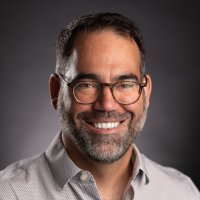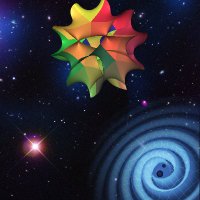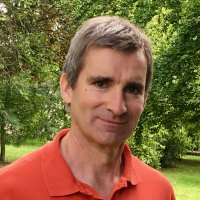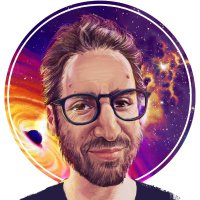
Gregor Kasieczka
@gregorkasieczka
ID: 1339508444764786694
https://www.physik.uni-hamburg.de/en/iexp/gruppe-kasieczka.html 17-12-2020 09:51:19
697 Tweet
990 Followers
457 Following


Now it's official: Received my promotion to full professor at Universität Hamburg today. Grateful to everyone who helped me get here & looking forward to many more years of exciting research!


Greetings from RWTH Aachen University from the annual German CMS Experiment CERN meeting Here our new spokesperson with all the cool things going on in CMS Slides not public, but let me give 3 numbers: -1321 papers submitted -100 fb-1 luminosity in 2024 -9.9 MeV uncertainty on W mass


📣📣 Apply now for our joint physics & computer science #PhDjob at DASHH Interdisciplinary Helmholtz Graduate School Develop better anomaly detection techniques and apply them to CMS Experiment CERN data! ⬇️⬇️⬇️ dashh.org/application/ph…


The computer science department ULiège FSA is opening a full-time academic position in computer vision/AI for sports 🤖⚽️🏀 Come join us in Belgium! DM for details or questions. fsa.uliege.be/upload/docs/ap…


Come be my colleague! I’m very happy to share that UW-Madison Physics has a faculty opening focusing on experimental physics and AI as part of the University’s ambitious RISE-AI initiative. datascience@uw


Curious to know how Quantum Universe Research benefits from the pioneering works of the Physics #NobelPrize2024 laureates? Here is more on the topic! Gregor Kasieczka qu.uni-hamburg.de/activities/new…

.Bruce Denby is the author of the very first paper on AI and Particle Physics back in 1988, when he was a post-doc in Orsay ( IJCLab @cnrs_in2p3) working in the CERN LEP DELPHI experiment. He was almost fired for this! #HEPML Tommaso Dorigo Kyle Cranmer Gregor Kasieczka


Today ends the #ML4Jets conference in Paris. Great to see the progress in the field from one year to the next, with no saturation in sight. Below some Quantum Universe students & collaborators (and, of course, beautiful #Paris) Many thanks to AnjaB & David Rousseau et al for hosting this!



New(ish) result: A massive comparison of generative architectures as surrogate models for particle showers in calorimeter detectors Thanks to Claudius Krause for pushing this over the finish line & everybody who contributed! Full 200+ pages here: arxiv.org/abs/2410.21611




New paper! Learning Broken Symmetries with Approximate Invariance Led by HIGH SCHOOL STUDENT Seth Nabat, with Aishik Ghosh, Ed Witkowski and Gregor Kasieczka. arxiv.org/abs/2412.18773




